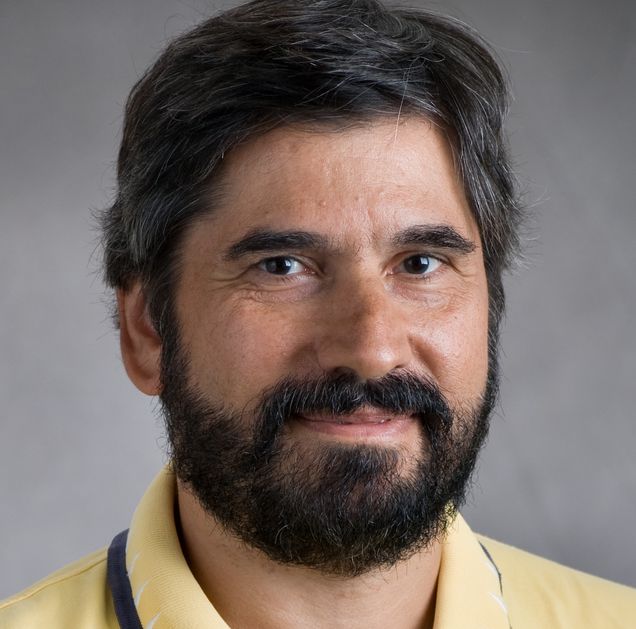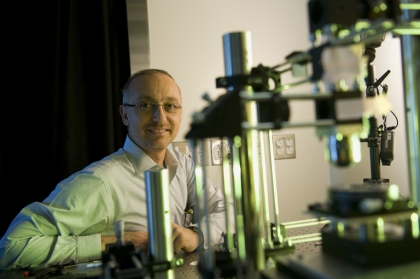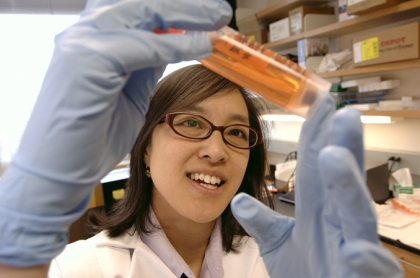ENG Selects Inaugural Term Distinguished Professors of Engineering
Five College of Engineering professors, including CISE Faculty Affiliates John Baillieul (ME, SE) and Christos Cassandras (ECE, SE), have been selected as the inaugural set of Term Distinguished Professors of Engineering. Each will carry the title of “Distinguished Professor of Engineering” and receive a stipend of discretionary funds throughout their term. Thereafter, the title will be retained throughout their career at Boston University.
“Each of these faculty members has had a lengthy distinguished record of impact in research and in service to the College of Engineering and their profession,” said Dean Kenneth R. Lutchen.
 John Baillieul
John Baillieul
John Baillieul’s research focuses on robotics, the control of mechanical systems, and mathematical system theory. He is currently working to extend and apply principles from nonlinear control theory to complex mechanical systems composed of interconnected rigid and elastic components. Baillieul has published more than 160 peer-reviewed papers, is Fellow of the IEEE, International Federation of Automatic Control (IFAC) and Society for Industrial and Applied Mathematics, and has received the IEEE Control Systems Society Distinguished Member Award and IEEE Third Millennium Medal. He served as the Chinese Academy of Sciences T.S. Tsien International Outstanding Lecturer and as a distinguished lecturer at other institutions. His service to the profession includes editor-in-chief of IEEE Transactions on Automatic Control, president and member of the board of governors of the IEEE Control Systems Society, and member of the board ofdirectors of the IEEE. At the College of Engineering, Baillieul has been chair of both the Manufacturing Engineering and Aerospace & Mechanical Engineering departments, the associate dean for Academic Programs, the director for the Division of Engineering and Applied Sciences, and a founding member of the Center for Information and 系统工程. He was the College’s inaugural Distinguished Lecturer.
 Christos Cassandras
Christos Cassandras
Christos Cassandras’ research centers on discrete event and hybrid systems, cooperative control, stochastic optimization and computer simulation, with applications to computer and sensor networks, manufacturing systems and transportation systems.
The author of more than 350 peer-reviewed journal articles and proceedings, five books, Cassandras is a Fellow of the IEEE and IFAC. He has served as the president, vice president for publications, and member of the board of governors of the IEEE Control Systems Society, and on the board of directors of the American Automatic Control Council. His awards include the IEEE Control Systems Technology Award, the Distinguished Member Award of the IEEE Control Systems Society, the Harold Chestnut Prize, the IEEE Distinguished Lecturer Award, a prize for the IBM/IEEE Smarter Planet Challenge competition, a Lilly Fellowship and a Kern Fellowship. A chair or plenary/keynote speaker at several conferences and guest editor of many technical journal issues, he has served as editor-in-chief (1998-2009) and earlier as editor of the IEEE Transactions on Automatic Control, and is the senior editor for the Journal of Control and Decision. He has worked extensively with industrial organizations on various systems integration and simulation projects. At the College of Engineering, Cassandras is Head of the 系统工程 Division and a co-founder of the Center for Information and 系统工程, and was a Distinguished Lecturer.
 Christopher Chen
Christopher Chen
Chen is widely recognized as a world leader in tissue engineering and mechanobiology—the study of how physical forces and changes in cell or tissue mechanics contribute to development, physiology and disease. His research seeks to identify underlying mechanisms by which cells interact with materials and other cells to build tissues, and to apply this knowledge to better understand the biology of stem cells, tissue vascularization and cancer. The author of more than 130 peer-reviewed publications, Chen is a Fellow of the American Institute for Medical and Biological Engineering, and a member of the Faculty of 1000 Biology, the board of trustees for the Society for BioMEMS and Biomedical Nanotechnology, and the Defense Sciences Study Group. He is on the editorial board for Science Translational Medicine, Annuals Reviews of Cell, Developmental Biology, and Developmental Cell, and an editor for Journal of Cell Science, BioInterphases, Technology, and Molecular and Cellular Bioengineering. His many honors include the Presidential Early Career Award for Scientists and Engineers, the Angiogenesis Foundation Fellowship, the Office of Naval Research Young Investigator Award, the Mary Hulman George Award for Biomedical Research and the Herbert W. Dickerman Award for Outstanding Contribution to Science.
 Selim Ünlü
Selim Ünlü
Ünlü’s research is concerned with the development of photonic materials, devices and systems focused on the design, processing, characterization and modeling of semiconductor optoelectronic devices, and high-resolution imaging and spectroscopy of semiconductor and biological materials. The author of 163 peer-reviewed journal articles and an IEEE Fellow, he has served as editor-in-chief of the IEEE Journal of Quantum Electronics and as former chair of Photodetectors and Imaging, founding chair ofNanophotonics and current chair of Biophotonics technical committees for the IEEE Photonics Society. His awards include the IEEE Lasers and Electro-optics Society Distinguished Lecturer, the Photonics Society Distinguished Lecturer, the Australian Research Council Nanotechnology Network Distinguished Lecturer, the Turkish Scientific Foundation Science Award, and the National Science Foundation CAREER and Office of Naval Research Young Investigator Awards. At the College, Ünlü has served as the Associate Dean for Research and Graduate Programs and is now the Associate Dean for Research and Technology Development.
 Joyce Wong
Joyce Wong
Wong’s research focuses on elucidating fundamental molecular, cellular and interfacial processes, and applying these principles to guide tissue engineering and develop in vitro engineered model systems to study disease progression. The author of more than 80 peer- reviewed journal articles, she is a fellow of the Biomedical Engineering Society and the American Institute for Medical and Biological Engineering. She is also the recipient of the Hartwell Individual Biomedical Research Award, the Japan-American Frontiers in Engineering Award, the Dupont Young Professor Award, the NAS Frontiers in Engineering Award and the NSF CAREER Award. She was elected and served on the board of directors of the Biomedical Engineering Society and served on the Beckman Foundation Scholars Advisory Panel. She also serves on the editorial boards of Regenerative Therapy, Biomatter and Cellular and Molecular Bioengineering. Wong’s roles at the University includes director of the Provost’s Initiative to Advance Women in STEM, co-director of the Affinity Research Collaborative in Nanotheranostics, and former associate director for the Center for Nanoscience and Nanobiotechnology.